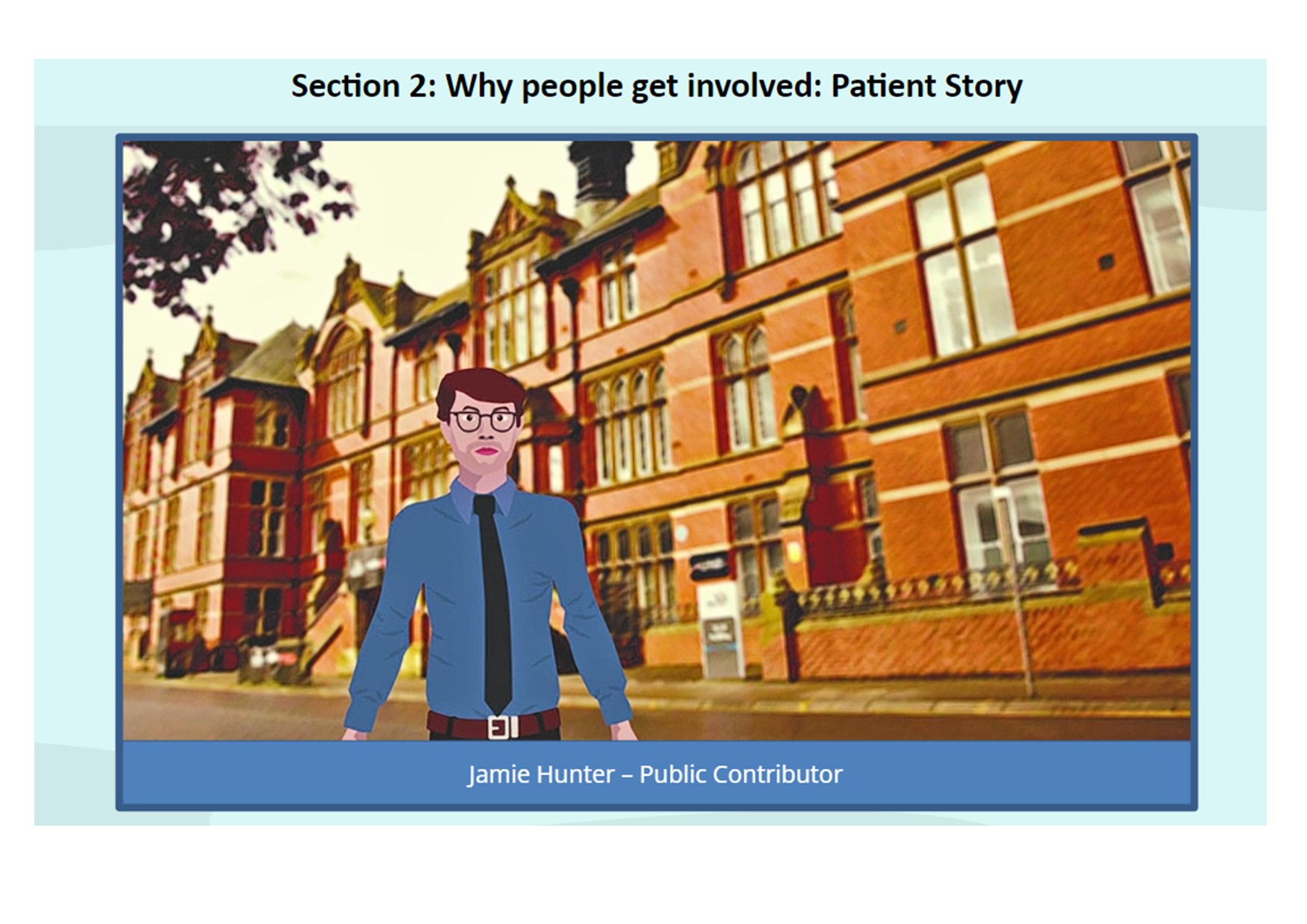Public Advisor Jamie Hunter Shapes Patient Involvement Modules at the University of Liverpool

Jamie Hunter a dedicated public advisor for ARC North West Coast, has been instrumental in co-producing public and patient involvement (PPI) training modules at the University of Liverpool. These innovative modules aim to bridge the gap between researchers and the public, ensuring health and social care research is more inclusive, accessible, and impactful.
Jamie’s journey into public advising began at ARC NWC Member Organisation, NHS Mersey Care Foundation Trusts, Life Rooms service, where he worked on a social prescribing project that combined his passion for helping others with his research skills. Reflecting on his experience, Jamie said, “My work at Life Rooms showed me how lived experience can shape research. That insight has driven my contributions to ARC NWC and these modules.”
The PPI modules provide researchers with tools to integrate public involvement effectively. Jamie explained, “Many researchers follow guidelines without considering the value of lived experience. These modules highlight how public input, even from those not meeting traditional criteria, can enrich research outcomes.”
Jenny Preston, Patient and Public Involvement Policy Manager at the University of Liverpool, praised Jamie’s input and the training initiative stating, “The PPI modules offer an essential framework for researchers, guiding them on how to meaningfully involve with patients and members of the public. This training helps ensure that research is not just informed by academic theory but shaped by the real-world experiences of people who are directly impacted by health and social care policies.”
“Through contributions like Jamie’s, we can ensure these modules are truly inclusive, offering a deeper understanding of the diverse lived experiences that shape our work. I want to thank Jamie for his invaluable input, which has been key in making these modules both relevant and reflective of the challenges faced by different communities.”
A core focus of the modules is reducing health inequalities. Jamie highlighted this, saying, “Health inequalities aren’t just theoretical. Lived experiences reveal gaps that research alone might miss. These modules equip researchers to address those gaps, creating more equitable outcomes.”
Jamie’s contributions stem from his personal experiences and commitment to inclusion. As someone with Asperger’s syndrome, he shared: “My lived experience informs my perspective on health inequalities. I have also learnt from working with the deaf community at a local Southport deaf registered voluntary group called “Practice Makes Perfect”. This inspired me to study a course on deaf culture and history at UCLAN. In which I met an inspirational lecturer Dr. JunHui Yang which taught me the fundamental historical background to how the deaf community in the UK have struggled with health inequalities. Insights like these experiences help to shape research that is inclusive of all communities.”
Looking ahead, Jamie envisions expanding the modules to include perspectives from underrepresented groups, such as the deaf community. “I hope to see these modules evolve to address specific challenges faced by groups like SignHealth. Their input could open researchers’ minds to broader issues,” he said.
This first module and the future modules which are in development offer researchers’ valuable tools to ensure their projects are more inclusive and impactful. By embracing public involvement from the start, researchers can ensure that their work is more relevant and effective in addressing the needs of diverse communities. Researchers are encouraged to access the modules and integrate the lessons into their own projects to drive meaningful, long-lasting change.
For more information and to access the modules, visit the University of Liverpool’s Patient and Public Involvement training page here.
This work exemplifies how co-produced educational resources can transform research practices, ensuring they serve diverse populations. As the PPI modules gain traction, they stand as a testament to the power of collaboration in reducing health inequalities and advancing public health research.